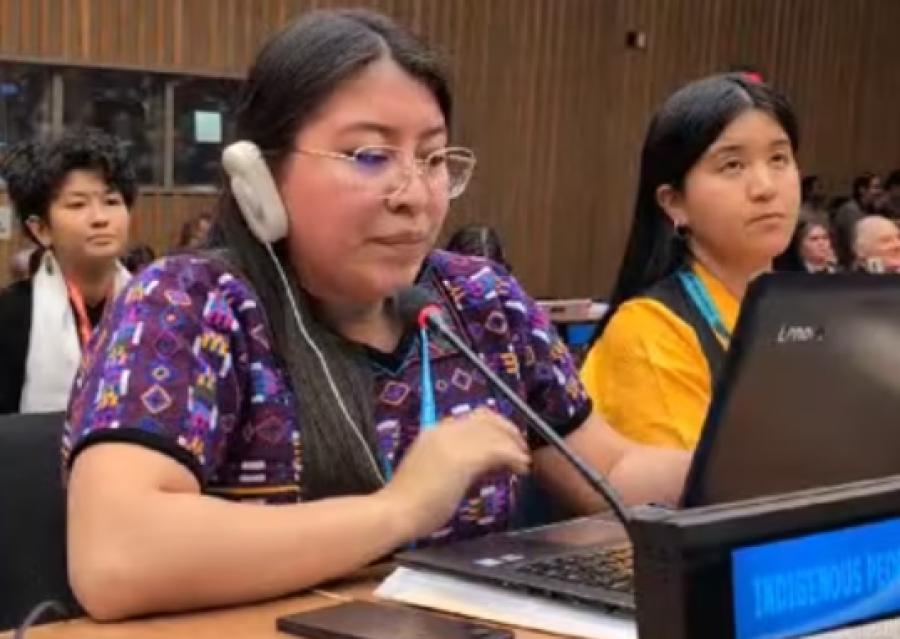
By Febna Caven
The highly anticipated December 21, 2012 has come and gone. With no darkness that spanned 4 days, no intervention of intergalactic Pleiadians coming to save us and no cataclysmic clash of Nibiru/ Planet X with Earth, the 13th b’aktun ended peacefully to give way to the start of another new cycle. A b’aktun in the long count Mayan calendar is a period of 144,000 days. On December 21, 2012, which was 13 b’aktuns away from the day August 11 3114 B.C. in the Gregorian calendar, the Mayan calendar completed one long cycle coming back to the point 13 b’aktun, 0 K’atun, 0 Tun 0 and 0 K’in Winal which is considered as the day of creation in Mayan worldview. Before the dawn of the 21st of December, doomsayers ascribed everything from assistance by extraterrestrial intelligence to lost tribes of Atlantis to support the ingenuity of the Mayan Calendar and thereby the veracity of an end of times scenario. In this regard they were not too different from the missionaries of the 6th centuries, who, befuddled by the sophistication that they found in Mayan heartlands investigated for ‘real originators’ of these innovations. By the dusk of the same day of the 21st,with no apocalypse in sight, the it was the time for the naysayers to be in the limelight to reiterate the folly committed in trusting a ‘superstitious and unscientific’ culture’s product.
As the world relishes over one more unfulfilled doomsday, what is evident is that colonialism is still rampant. An age-old civilization’s intelligence still remains misinterpreted, exploited and then dismissed.
What did come true was prophesies of Mayan scholars like Professor Victor Montejo, who saw the misinformation and sensationalism around the Mayan Calendar being one that pulls to pieces the rightful history, scientific knowledge and ingenuity of the Mayan civilization as well as overshadows the efforts of that the Mayan scholars, leaders and activists who are struggling to rectify their distorted history. Montejo, an eminent scholar on Mayan history and culture, who addressed the Smithsonian Institute on Dec 14, 6 days before the 21 stated that the sacred knowledge and the long count calendar has been misappropriated by non-Mayans “transforming the historical cosmic event in the long count calendar into a product to be marketed and consumed by tourists”. He noted wryly, how mass media, with talk shows, series and movies on the theme had ignited a desire for cataclysmic destruction in a population anxious to die.
Montejo’s lecture emphasized the pertinent point the whole discourse on the Mayan Calendar overlooked- what does the Mayan Calendar mean to the Mayans, the people by whom, and for whom the calendar was created? As Prof Montejo explained, the sacred Mayan calendar is an instrument to mankind to facilitate a reciprocal relationship between man and nature, man and the cosmos. According to him, the 13th b’aktun is the most important cycle for the Mayans. This is so not only because of a shift in quality of time and consciousness, but also because of wha the day of completion of 13th b’aktun commemorates. Montejo theorizes that the first day of the Mayan Calendar is ascribed so to mark the survival of mankind from a devastating calamity, probably something akin to the mythical flood remembered in many cultures’ histories. Seen in that light, a return to the day is a reminder of the dangers of unscrupulous exploitation of nature, the powers of nature and people’s survival in the face of devastation. The theory of 13th b’aktun thereby points to a theory of change in cosmic consciousness where a time of radical strife, change is part of a process for renewal. As a Mayan intellectual speaking for the Mayan people, Montejo identifies this resurgence to be a resurgence from the centuries long colonialist oppression and racial discrimination. For the modern Maya, the pertinent issue in this b’aqtun is to rethink the denigrated condition they found themselves in as a result of colonialism. The current situation of poverty, landlessness and racist treatment is what the Mayans keep as foci of their collective aspiration to transform. The Mayans speak of a return of their ancestors in this phase, which the Mayan intellectuals interpret as a return to their ancestor’s ways of seeing. There is a collective will to reclaim the Indigenous knowledge and ways of living.
And herein lies the painful irony of the whole 13th b’aktun discourse. As the Mayans themselves perceive the arrival of and preparing for a new era of resurgence from their colonized history with the the discourse on the b’aktuns are themselves colored by colonialist mentality. To quote Montejo on this,
"Colonialism has been a destructive force, that took away from their [Mayan] traditional knowledge and way of life…calling them as uncivilized, primitive and savages. The very same colonialism has resurfaced in the ways the debates around 13th b’aktun have played out. Others have taken the task to represent and explain things in the name of indigenous people. And the stories being told are not necessarily the ways the indigenous people understand things. Instead these are the points of views of outsiders who tend to distort indigenous histories while misrepresenting their scientific achievements. The silencing of the indigenous voice is persistent and the colonialism dominant in the as these denigrating stories are popularized as Maya predictions and prophesies”.
The present scenario also offers an insight into the past. As Montejo astutely points out- if in this modern day, a myth of end of the world resplendent with interventions from aliens and lost civilizations can be propagated so easily, it is evident how easy it was for the Spanish colonizers to propagate myths like the one of the Spanish conqueror Hernan Cortez being welcomed as the God ‘Quetzalcoatl’ by the Mayans.
Indeed, for the Mayan people it has been more than 500 years of colonialism. With their lands exploited, their most sacred books put to fire, their temples popularly remembered as sites of battles in Star Wars than sacred sites and themselves parodied as a group of primitive but lucky recipients of some alien intelligence’s advice the Mayans have experienced exploitation and misrepresentation in different shades and guises.
The 13th b’aktun; the end of a cycle; the date for a reset; the start of a radical resurgence couldn’t have been any farther. It is not just that it happened. It needed to happen now.
--Febna Caven is an independent researcher and writer on communities in contested environments.
Professor Victor Montejo is a Jakaltek Maya from Guatemala and an Emeritus Professor of Native American Studies at University of California Davis. He was the former Minister of Peace In Guatemala. He is a national and international recognized author and his major publications includes: Testimony: Death of a Guatemalan Village (1987), Voices from Exile: Violence and Survival in Modern Maya History (1999); Maya Intellectual Renaissance: Critical Essays on Identity, Representation, and Leadership (2003); Popol Vuh: Sacred Book of the Mayas (1999); Q’anil: man of Lightning (2002).
.



